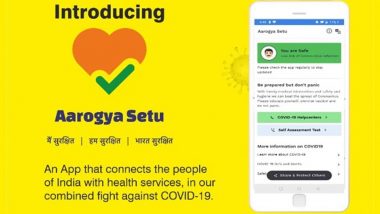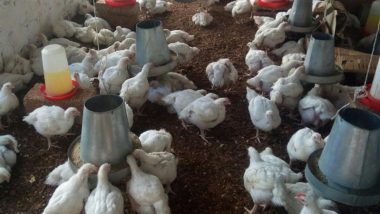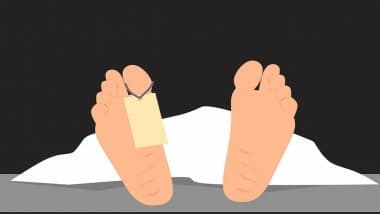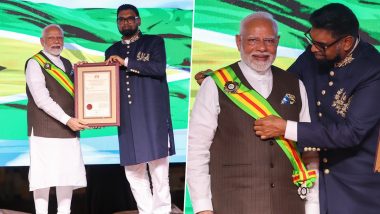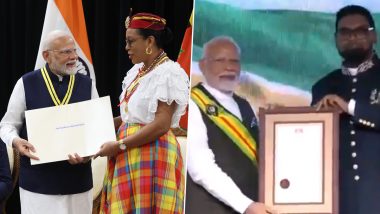He cites Arogya Setu app gives us digital immunity as it tests and tracks at high speed and allows us to isolate those who are potential transmitters, make sure they are healthy and well and don’t transmit. “Such apps must be made socially applicable and must be combined with other manual measures like Masks, and washing etc” he said.
Mr. Jairaghavan outlines how India has made a repository of progress in Covid-19 fight.“ In terms of startup and translational side, Startup India and Invest India have got really good compilations of what really is done. Our science agencies website also compiles crucial data.”
Being Self Reliant in Pandemic
Mr. Jairaghavan enunciate PM Narendra Modi’s message of how the COVID-19 pandemic has taught India to become self-reliant. Prime Minister in an interaction on the Panchayati Raj Day, inaugurated e-Gram Swaraj portal and a mobile application on the occasion, underlining that it is now imperative that villages also become self-reliant for their basic needs.
Mr. Jairaghavan sees how the current pandemic is making the world undergo a dramatic change from a previous world order to a new world order where there are immense opportunities for countries like India to show its potential as a budding manufacturing hub. “In the previous world order we were dominated by several supply chain monopolies which decided what we could do and what we could not. Due to this, many countries, including India faced challenges in becoming manufacturing hubs which has changed now where we are getting back into capturing components of manufacturing , whether its chemicals needed for drugs, or components needed for phones and communication, or manufacturing in the textile industry.”
A recent progress on this front is Union Health Minister Dr. Harsh Vardhan’s announcement that the country will be self-reliant in producing RT-PCR and antibody testing kits by May-end that will enable it to conduct one lakh tests a day.
India’s Strong Vaccine Presence
Indian vaccine companies are innovating like never before. “If you look at 3 vaccines that every child in the world gets, 2 of them are made in India so Indian vaccine presence is enormous globally” said Mr. Jairaghavan.
He mentions that Indian academics are coming forward together to understand complex technologies used for making vaccines. “There have been about 90 vaccine attempts worldwide for COVID and it is key to interact as to how a successful vaccine can reach the whole world.”
India is also involved in WHO’s "Solidarity” trials which is an international clinical trial to help find an effective treatment for COVID-19. Trials seek participation from various other countries as well like Thailand, Argentina, Bahrain, Canada, France, Iran, Norway, South Africa, Spain and Switzerland.
The Solidarity Trial is key as it will reduce the time taken by 80% by overcoming the risk of multiple small trials.
On India’s involvement with WHO on solidarity trials being driven by ICMR, Mr. Jairaghavan said, “Right now they involve drug trials but will soon include vaccine trials too.”
Finding Drugs and Re-purposing Existing Drugs
There are some challenges to finding a cure of Covid -19 which can take place by either finding new drugs or re-purposing existing drugs.
On the first challenge, Mr.Jairaghavan stressed on keeping in mind the nature of viral illnesses as viruses to greater extent use the human body’s own machinery to replicate. Hence, “finding a new drug is not easy as it will attack our own machinery besides attacking virus. Another challenge is, the drug must be able to kill the virus in the initial stage as later the virus will multiply making the drug ineffective”
He stated that re-purposing existing drugs for Covid-19 requires careful trials.
HCQ is one such existing drug that has taken the whole world by storm with US president Donald Trump calling it a “game changer”. Later, US Food and Drug Administration (FDA) cautioned against its use outside of the hospital setting or a clinical trial due to risk of heart rhythm problems. It further recommended close supervision.
Mr. Jairaghavan also suggests that more trials to test safety and effectiveness for HCQ in Covid illness are needed. “It is primarily used for malaria, arthritis, and Lupus. The drug changes the acidity of internal cellular compartments of the cell. If the acidity is altered the virus may not survive. This is where HCQ has proved to be effective in lab tests but it's still uncertain how it's going to be on humans.”.
Prospects of Herd Immunity and Plasma Therapy
Several treatments, which are under experimental stage, are being touted in the world to cure COVID-19. One of them is Plasma therapy and Herd Community method.
Plasma therapy uses blood donated by recovered patients to introduce antibodies to those under treatment. But ICMR has clearly stated that there are no approved therapies for Covid-19, including plasma therapy and so far there is no evidence to say that it is effective.
Another approach is ‘Herd Immunity’. When most of a population is immune to an infectious disease, this provides indirect protection—or herd immunity to those who are not immune to the disease.
Explaining about uncertainty around this method, Mr. Jairaghavan said “The noteworthy point in Herd immunity is what should be the percentage of people exposed to the virus and have recovered to provide immunity to the entire population. In some diseases it's as low as 40%, in others it is higher, much depends on the nature of diseases and how rapidly it spreads. In SARS- Corona virus we don’t know yet what level of people have been exposed and how many of them will have immunity after recovery.”
(This article has been sourced from Prasar Bharati News Services as part of Coronavirus coverage)
(The above story first appeared on LatestLY on Apr 29, 2020 04:58 PM IST. For more news and updates on politics, world, sports, entertainment and lifestyle, log on to our website latestly.com).













 Quickly
Quickly








